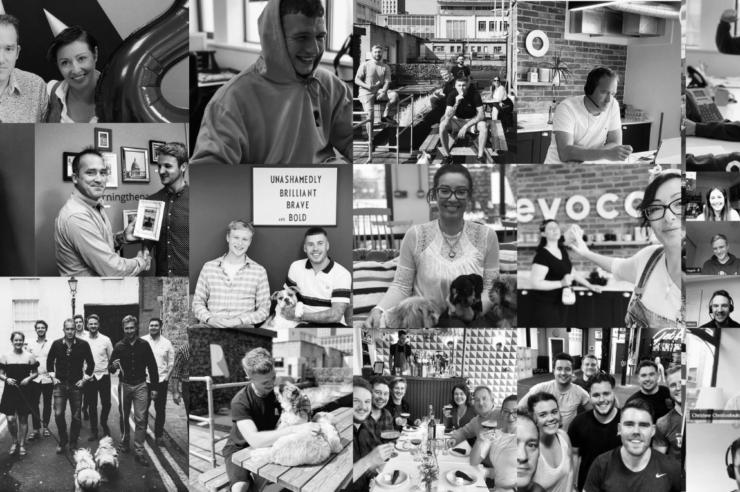Written by:
Iain Brook
The tools you need to smash your Python career!
If you’re a Python Developer looking to level-up in your career this year, you’re going to need to do more to standout in the market. The fallout from COVID has meant that the number of applicants for developer roles has increased by tenfold. Hiring managers are back in the driving seat after a long period of battling it out with their competitors for the best talent. Now, only the best candidates are getting a look in.
Now’s the time to put the wheels in motion, enhance your career and give yourself the best possible chance when it comes to looking for a new role.
I speak with established Python Developers and hiring managers day in day out and their views on what’s needed to build a future-proof career in Python seem to focus on similar themes. I’ve correlated their thoughts and combined them with my own experiences recruiting within Python, in the advice below…
First things first…
Every day’s a learning day.
Upskill!
Developers who continue to learn new skills are often the developers who progress further in their career.
With technology constantly evolving, hiring managers want Developers who are hungry to learn and who can adapt in line with the market.
While many tech companies invest in their developers with continual training, you may feel this is slightly lacking in your current company. The good news is, there’s online training and resources you can take advantage of in the interim.
Check out Udemy, Makers academy and Plural sight for more insights on how and where you can upskill.
Get out there in the tech community!
A great way to enhance your career, get noticed and find out about the best opportunities, is to get out there and be active in the tech community.
There are loads of avenues you can take when on a mission to do that…
Attend Python / developer events:
We’ve spoken about upskilling, and attending events is a great way to help you do that.
In London alone there are more than 30 developer events you can attend every week (although they are all being run online at the moment), in a pre-pandemic world an average of 1,500 developers were attending in person, community events every week.
Be sure to check out Eventbrite / Meet-up and Skiddle to be in the know of what’s on and when.
Networking at events is a great way to build your visibility in the market and your personal brand as a Python Developer. By keeping yourself in the loop, you’ll be more likely to hear about opportunities relevant to you – whether they’re potential job opportunities or opportunities to share your programming knowledge and expertise with a wider audience.
Blog about Python:
Got a cool hack? Experienced a new way of building a project that other Python developers need to hear about? Why not share it with the wider community?
Blogging is a great way to build your brand as a Python developer.
Much like events, blogging is a great way to get noticed by potential employers when the time comes to begin your job search.
There’s some great platforms you can use to get your blog off the ground, including Medium and WordPress to get you started.
Another thing to note is that established bloggers and developer networks are often on the lookout for Developer thought leaders who are happy to share their knowledge on a wider scale. Keep a look out for these opportunities on social media and any developer forums you follow.
Register with a decent specialist recruiter!
I know what you’re thinking ‘Yeah, of course you’d say that.’ But, hear me out. By registering with a specialist Python recruiter, you’re immediately putting yourself at an advantage.
Any specialist recruiter worth their salt will only work with the best hiring companies, so you’re already putting yourself at the forefront of the action when it comes to opportunities.
Also, your specialist recruiter will be able to give you market insight and hints & tips from the clients they work with; advice that is extremely valuable when it comes to your job search.
When you’re in the advanced stages of your career development. There’s more to think about…
So many brilliant Devs lose out on opportunities because they didn’t deliver the goods at interview stage. Don’t fall into that bracket!
Here’s a brief run-down of some tips to consider…
Picture this – you’ve taken my advice and your career development is paying off. You’ve made it past the pre-screen stage with your specialist recruiter, and the client (your dream software house) has agreed to interview you and you’re one step closer to joining their talented team.
You know you can code, you know you’re a team player – your current colleagues love you and you’ve secured roles like this in the past, so this interview should be a piece of cake, right?
Not so fast! You may have been told you’re the best python developer to walk the earth, but this is no time to get complacent and think the job is yours, purely based on past events.
There’s a number of things you need to do give you the best chance of success. Here’s a reminder just in case you need it…
Prepare:
Research the company – what stands out to you? What projects have they been working on? Study the company’s website and make sure you’ve taken note of any mission and company values information.
This isn’t your first rodeo. You know that when it comes to programming roles, a technical test is usually required. Don’t be blind sided and caught out by not preparing. There’s loads of brilliant resources available online that help candidates prepare for technical tests. Check out Tech Beamers, Test dome and Dev Skiller as a starting point and get some practice tests under your belt.
Know your CV inside out:
Get to grips with your CV and be prepared to talk about anything you’ve mentioned on it.
REMEMBER – interviewers want to hear what YOU did. Avoid using ‘We’/ ‘The team’ as much as possible.
This may sound so simple, but it’s surprising how often interviewees forget (especially if it’s been a while since they’ve last interviewed) …
Don’t forget the basics!
Body language: Use open, friendly body language. When interviewing remotely, this can be quite difficult to put across to your interviewer, so ensure your tone and facial expressions are portraying you in the best light.
Appearance: I don’t think there’s any need for a three-piece suit at an interview these days, but never be too sure. Double check with your recruiter or your hiring contact on the dress code and abide by it.
Then there’s always general interview etiquette:
Ask Questions:
Make sure you ask the interviewer questions; this shows you’re engaged and have a vested interest in the role and the company.
Don’t hold back – If you want the job, feel free to tell the interviewer this and be prepared to tell them why (all the preparation you’ve done will help you with this answer).
If you’re looking for more advice, these videos might help you…
There’s a lot to take on board but hopefully this blog has given you something to think about if you’re keen to progress to the next stage in your Python career.
As I mentioned, I speak to both Python candidates and clients day in day out. If you’re looking for some insight into the market or advice on where to go next in your developer career, I’d be happy to talk to you. Click here to check out my profile and get in contact with me.


